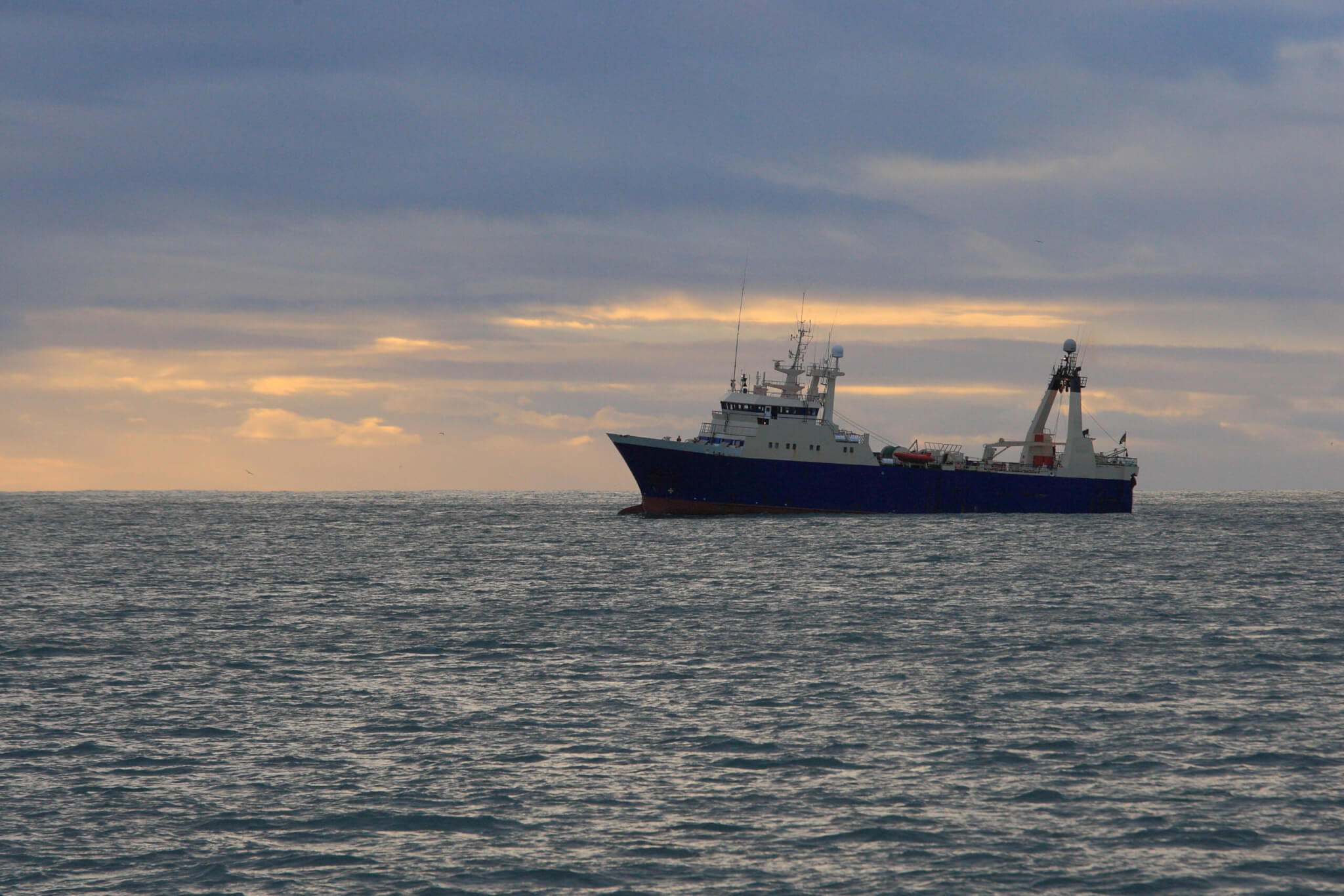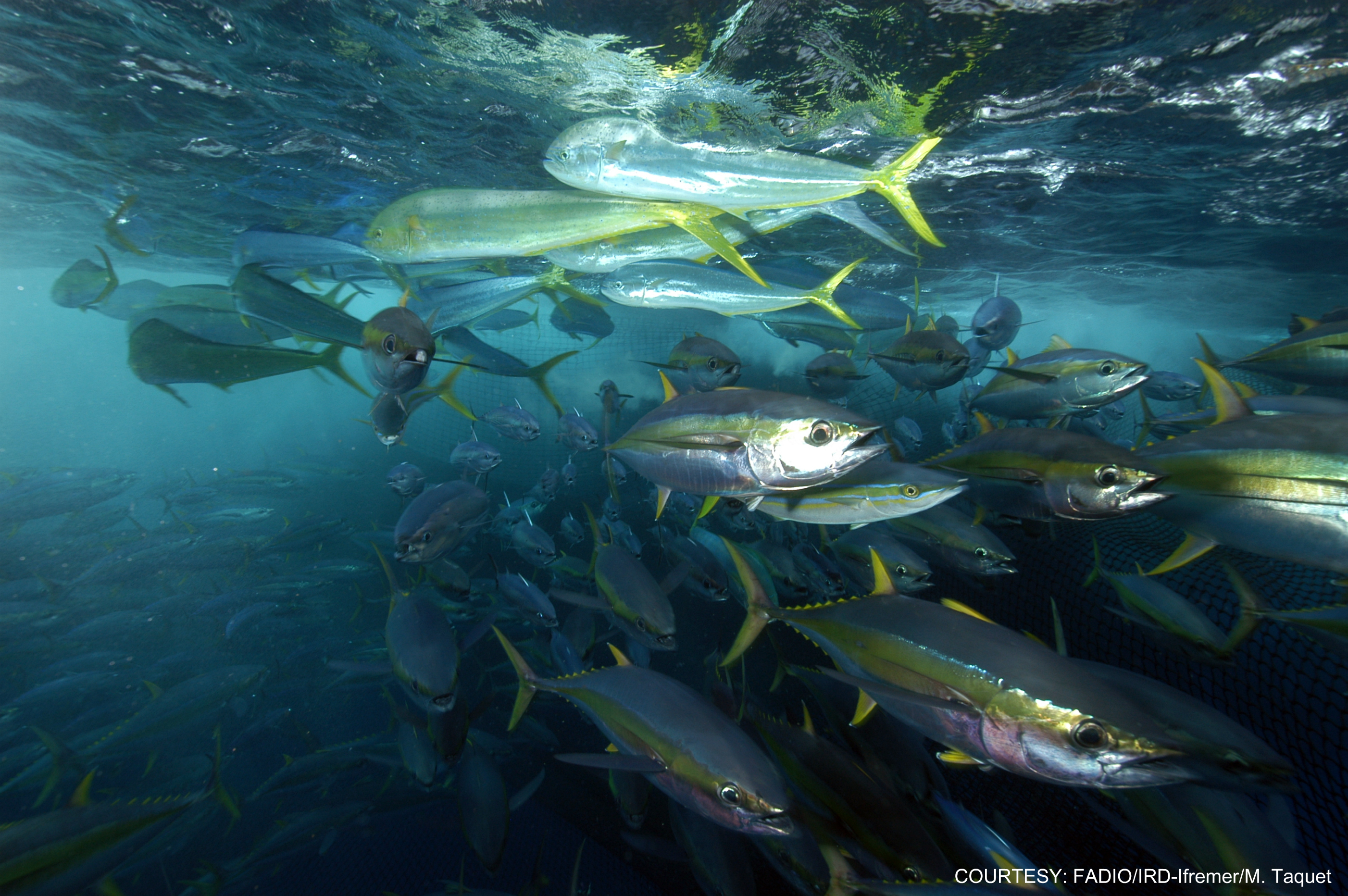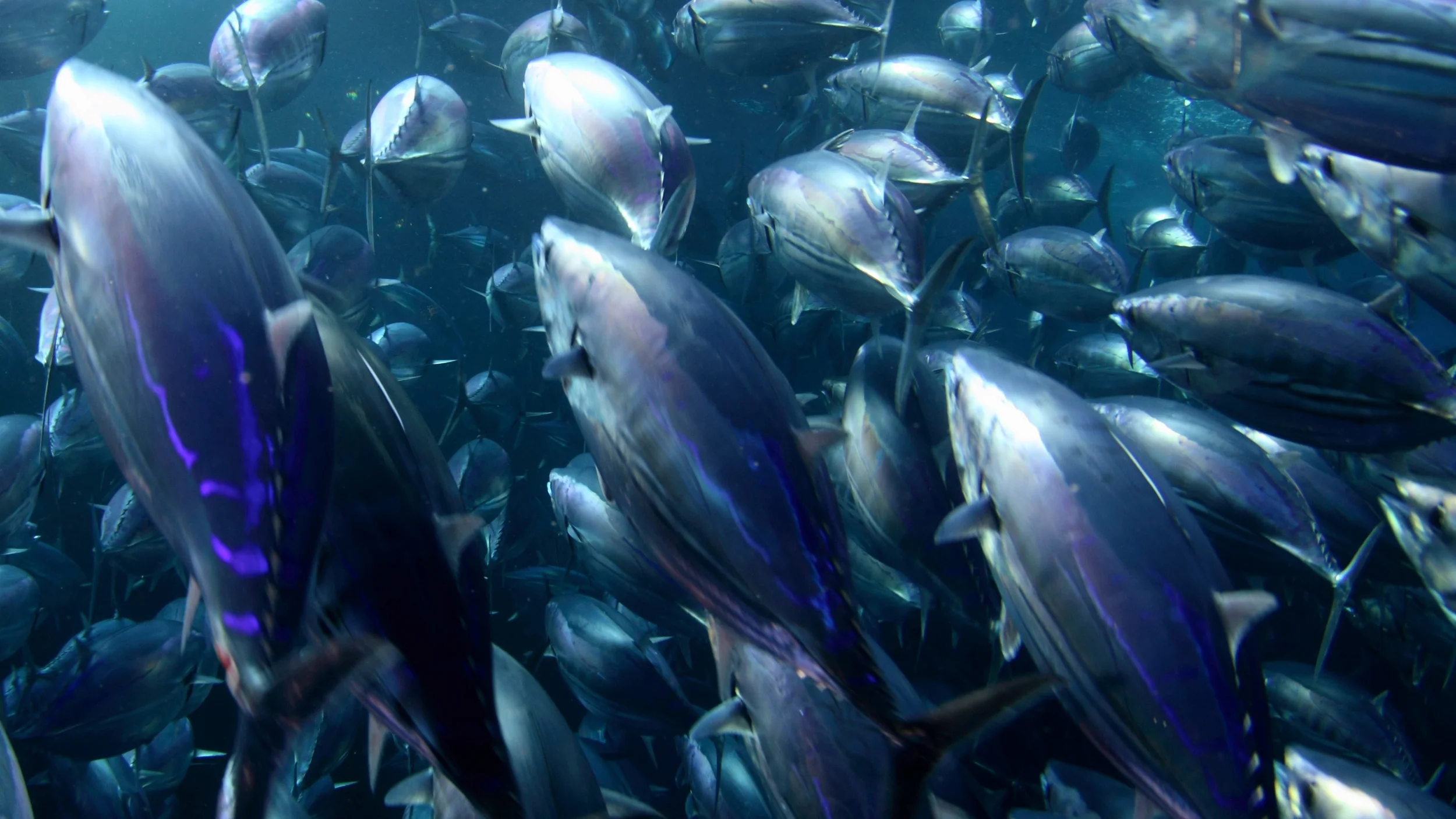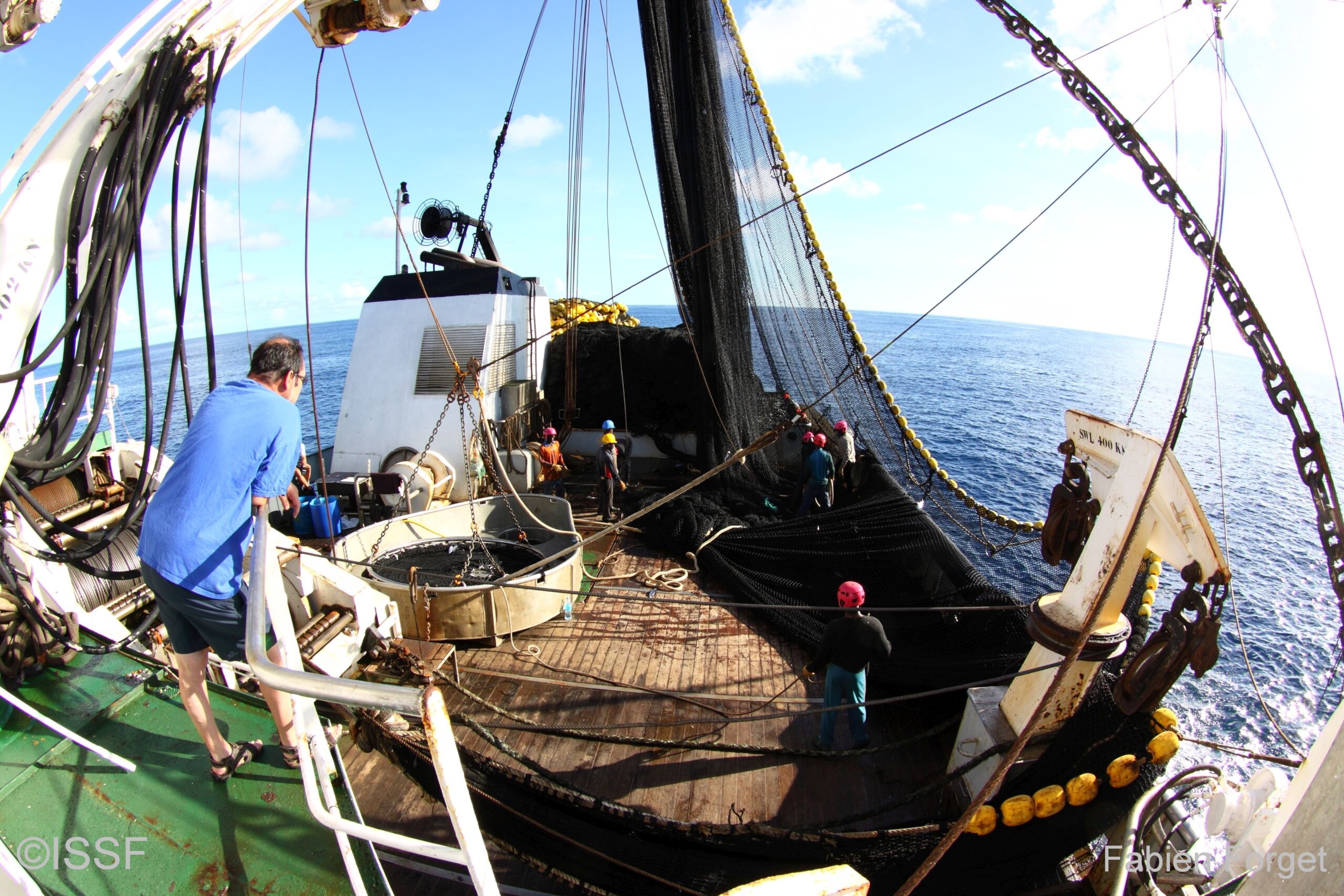
ISSF Annual Compliance Report Highlights Industry Progress in Tuna Sustainability and New Conservation Requirements
The International Seafood Sustainability Foundation (ISSF) has published its latest ISSF Annual Conservation Measures & ProActive Vessel Register Compliance Report, showcasing the continued commitment of participating companies to sustainable tuna fisheries and responsible supply chains. For the 2024 audit period, the 24 ISSF participating companies achieved a 99.6% conformance rate across 33 ISSF conservation measures.
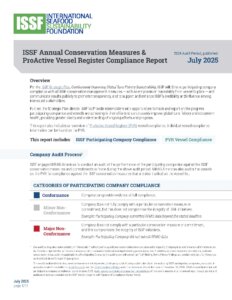
The report also presents the first audited results for Conservation Measure (CM) 2.5 – Transparency in Reporting Progress Against ISSF’s Five-Year Goal and for the reduction in sourcing Indian Ocean yellowfin tuna, newly in effect under CM 1.3 – IOTC Yellowfin Tuna Rebuilding. In addition, it summarizes the aggregate compliance of vessels on the ProActive Vessel Register (PVR) with ISSF measures applicable to vessel operations.
Highlights of the ISSF Company and PVR Vessel Compliance Report
The report highlights progress by participating companies and vessels in advancing tuna fishery sustainability. It tracks conformance with a broad range of ISSF conservation measures, including:
- Demonstrating the ability to trace products from can code or sales invoice to vessel and trip
- Submitting quarterly purchase data by vessel, trip dates, species, size and other data to RFMO scientific bodies
- Transactions only with those longline vessels whose owners have a policy requiring the implementation of best practices for bycatch mitigation of sharks and marine turtles
- Establishing and publishing policies to prohibit shark finning and avoiding transactions with vessels that carry out shark finning
- Conducting transactions only with purse seine vessels whose skippers have received science-based information from ISSF on best practices such as reducing bycatch
- Avoiding transactions with vessels that are on an RFMO IUU fishing list
Among participating companies, 21 of 24 fully complied with all 33 ISSF conservation measures during the reporting period. Three companies recorded a single major non-conformance each: one on CM 2.3 – Product Labeling by Species and Area of Capture and two on CM 1.3 – IOTC Yellowfin Tuna Rebuilding. The 99.6% conformance rate is a slight increase from 99.1% in November 2024.
PVR-listed vessels demonstrated an aggregate 77.5% compliance with 12 ISSF conservation measures that directly address vessel activity, including areas such as RFMO participation, use of non-entangling FADs, vessel-based FAD management policies, and observer coverage.
New and Notable ISSF Conservation Measures Audited
In 2024, all 24 ISSF participating companies achieved full conformance with CM 2.5 – Transparency in Reporting Progress Against ISSF’s Five-Year Goal. This measure requires companies to report the proportion of their tuna purchases from sustainable sources — such as Marine Stewardship Council (MSC)-certified fisheries or comprehensive Fishery Improvement Projects (FIPs) — and to provide roadmaps for improvement.
“Adding CM 2.5 to our compliance reporting reinforces ISSF’s commitment to continuous improvement and full supply-chain transparency,” said ISSF President Susan Jackson. “This measure gives retailers, NGOs, and other stakeholders the verified data they need to track how companies are advancing responsible sourcing in real, quantifiable terms.”
The report includes charts illustrating this newly audited individual company performance under CM 2.5. One chart shows the percentage of purchases by fishery source (e.g., MSC-certified fisheries, MSC-assessed fisheries, comprehensive FIPs), while the other details purchases by supplier type (e.g., ISSF participating companies, direct-from-vessel transactions). Together, these provide a clear view of how companies are progressing toward ISSF’s Five-Year Goal.
The report also shows that 22 of 24 ISSF participating companies were in full compliance with ISSF CM 1.3 – IOTC Yellowfin Tuna Rebuilding for the 2024 audit year. This measure supports stock recovery by requiring companies to publicly commit to and implement plans to reduce their sourcing of yellowfin tuna from the Indian Ocean. The specific requirement for companies to achieve sourcing reductions of 11% to 22%, based on their average annual Indian Ocean yellowfin purchases from 2017–2019, was newly audited and reported in this year’s compliance report.
“The Scientific Committee of the Indian Ocean Tuna Commission stated that larger catch reductions could allow the stock to recover sooner with a greater probability,” said Dr. Victor Restrepo, Chair, ISSF Scientific Advisory Committee. “Taken together, ISSF participating companies reduced sourcing of Indian Ocean yellowfin by 32.5%, well exceeding the intended goal of CM 1.3.”
“The adoption of CM 1.3 has been instrumental in aligning seafood industry practices with Indian Ocean Tuna Commission rebuilding efforts,” said marine scientist Dr. Andrew Rosenberg, Vice Chair, ISSF Board of Directors. “By setting a clear, science-based, measurable standard for sourcing reductions, the measure helps companies contribute directly to easing fishing pressure on the overfished yellowfin stock. This effort is essential for achieving sustainable fisheries.”
Reporting on Company Compliance Audits
ISSF’s commitment to transparency and accountability is reinforced through independent auditing by MRAG Americas, which assesses company compliance with ISSF conservation measures under a rigorous audit protocol. MRAG Americas also audits PVR vessels on compliance with vessel-related ISSF measures.
In addition to the summary report, MRAG Americas issues individual company compliance reports, which ISSF publishes on its website. PVR vessel compliance details are available on the PVR.
ISSF will publish the Update to the Annual Conservation Measures & ProActive Vessel Register Compliance Report in the fourth quarter of 2025 to reflect any improvements made by participating companies. Such updates will be noted in individual company reports available online.
